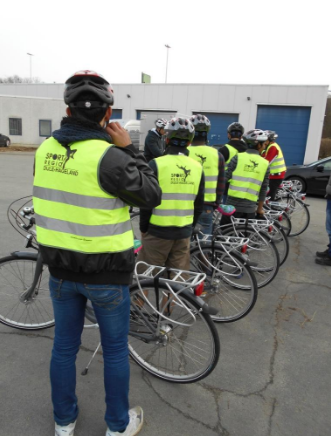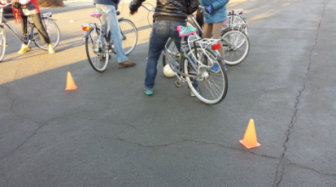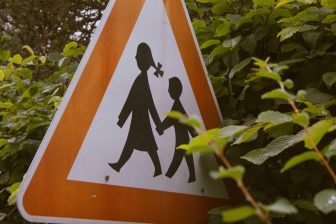
Minor refugees in Belgium learn how to bike
In 2015, 3300 unaccompanied minor refugees arrived in Belgium. Most of them are boys between 14 and 17 years old that have the same dreams of other youngsters: a world of peace, getting an education and having fun with friends. Cycling with them is a great way to have fun while teaching them different aspects of their new home country (its language, its traffic rules , some socio-cultural singularities) in an interactive setting.
Their life in Belgium starts in a particular refugee centre for minors, where a multidisciplinary team helps them with all the daily, procedural and psychological support needed. Several ones were set up in a temporally setting, as a response to the European refugee crisis in 2015. The refugee centre in Holsbeek is one them, situated in an industrial zone in Leuven and a temporary home for 60 boys between 15 and 18 years old.
Looking for a low-cost but high-result activity? Cycling is the solution!
Years of experience with cycling lessons for (adult) immigrants and newcomers learn that we cannot underestimate the positive impact of learning to cycle. Cycling is a cheap way of transport and as such a very practical solution to help people getting to their destinations. But the power of cycling is bigger than that: cycling is a motivating and empowering activity. Moreover, cycling is a perfect activity for integration and a rewarding engagement for volunteers.
Cycling is also good for children, for all children. Active travel has multiple benefits, a better health and fitness being the most evident one. But the benefits of active journeys are not just physical. Measurable increases in concentration, positivity and academic performance are further advantages as is the increase of independence and autonomy.
The boys in Holsbeek were very keen on getting on a bike again. They did have some cycling experience, but they did not know how to ride in a safe way in a different traffic system as they were used too: quite a lot of rules, signs and traffic lights to be respected. The cycling courses for these boys needed a different approach than the ones for adults:
- a theoretical course with more multimedia examples and more images as there was almost no common language.
- more active games and ‘real’ bike trips during the practical part
But the impact was the same, or even bigger than when adults learn to cycle: the boys were extremely happy because they were active while improving cycling skills. They could help each other, without words, just showing how to stop, turn or make a wheelie. It made them self-confident, free and worriless: boys will be boys, wherever they cycle.
This was one of the best days since I am in Belgium, it made me forget
what I survived and it made me smile
Moreover, the biking courses were the start of a new volunteering scheme, offer bigger cycling tours during the weekend. To discover relevant destinations (city centre, library, ..) but as well just to enjoy a great cycle tour in the forest. It meant the start of their cycling life in Belgium.

Author: Els Van den broeck – Project leader R&D at Mobiel 21
Photo Credit: photo by AC Holsbeek
Interested in hearing more on cycling with minor refugees from Els Van den broeck? Join us at the Child in the City Conference in Ghent, Belgium on the 7-9th November!




